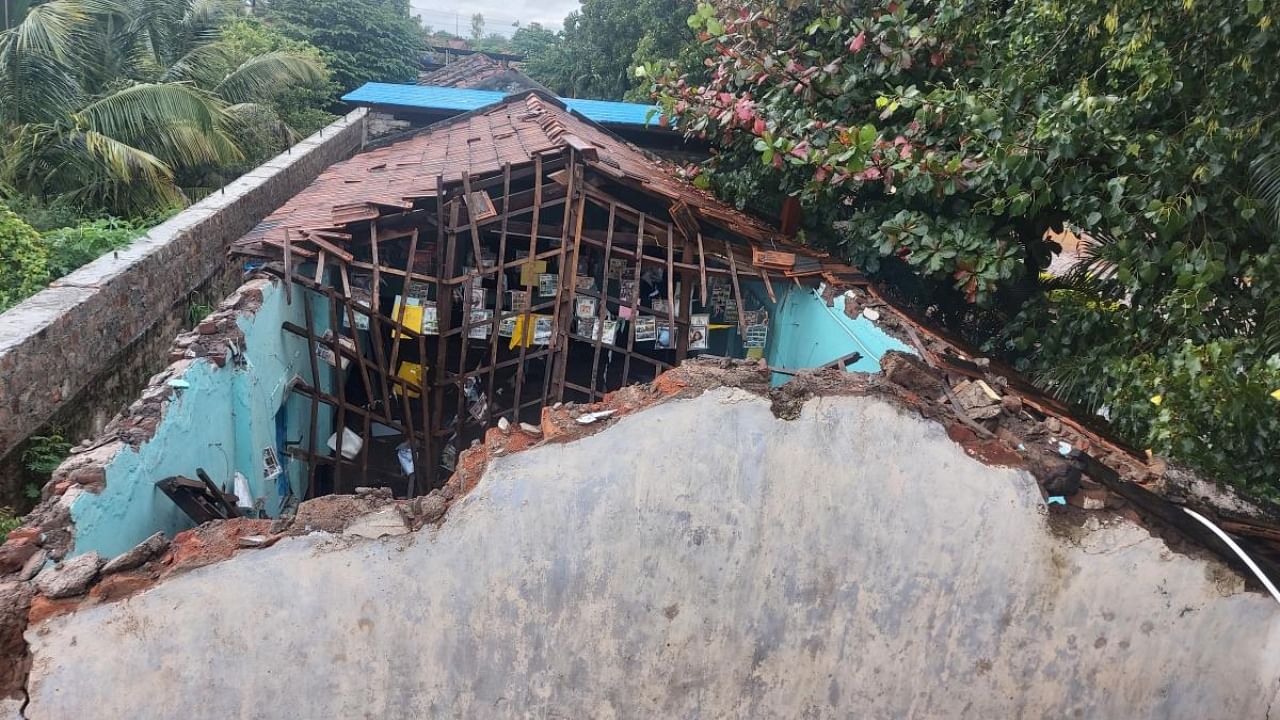
A preliminary report prepared by nine universities in Karnataka has suggested that the government should provide at least Rs 25 crore for the renovation and construction of Kannada-medium schools in each of the state’s 19 border districts.
The Karnataka Border Area Development Authority (KBADA) had asked the vice-chancellors of the universities to conduct a scientific study of educational infrastructure, socio-economic factors and cultural conditions in the 63 taluks of these districts.
Nagesh T K, a teacher at Nagaragere village in Chikkaballapur’s Gauribidanur taluk, said, “Kannada will be lost in the border villages, if we do not impart the language in schools. The influence of Telugu is very strong here.”
He said poor infrastructure and the growth of private schools were pushing Kannada schools to oblivion.
Teachers of six other schools in Belagavi, Kolar and Yadgir districts confirmed to DH that they had not received any funds from the government or KBADA to renovate the schools, which are in dilapidated condition.
The KBADA Act of 2010 has provisions for the construction and renovation of Kannada medium schools (both private and government) in border taluks and neighbouring states.
it includes measures such as appointment of teachers and building open libraries.
However, due to lack of funds from the government, the authority is unable to implement the work.
According to data provided by KBADA in the last two years, it has received only Rs 15.14 crore for its projects, including Rs 5 crore for construction of Kannada Bhavans in Goa, Akkalkot (Maharashtra) and Kasargod (Kerala).
The KBADA have given nearly 40% (Rs 4 crore last year alone) to 460 pro-Kannada organisations in the state for cultural events.
KBADA chairman C Somashekar told DH, “Earlier, there was no consolidation of data regarding the total requirement of funds for protecting and propagating Kannada language and culture in these border districts.”
He said the report will provide clarity on the number of schools in border taluks that require renovation.
“Based on the report, we will seek funds from the government,” he said.
Somashekar estimates that they would need at least Rs 25 crore for each district to improve the Kannada education system in border districts which have a heavy influence of Telugu, Tamil, Marathi and Malayalam.
Karnataka shares borders with six states: Maharashtra, Goa, Andhra Pradesh, Telangana, Tamil Nadu and Kerala.
KBADA secretary Prakash Mathihalli said there are several schools in border districts which do not have proper buildings, toilets for girls, access roads, drinking water and other basic facilities.
He said they have pending applications for funds up to Rs 150 crore to take up renovation of schools in border districts.
The finance department is yet to clear pending bills of ongoing projects worth Rs 27 crore, he said.
“Ever since KBADA was moved from planning section to Kannada & culture department two years ago, our share of funds has dwindled to Rs 10.14 crore annually,” Mathihalli said.
“The department will be left with hardly any funds to take up school renovation after spending on cultural programmes,” said an officer.
Earlier, each taluk used to get Rs 50 lakh for Kannada-related works.
“If we revert back to that scheme, we can at least take up renovation work in
government and private Kannada medium schools,” he said, rejecting the claim that funds are being returned unutilised.
KBADA was established in 2010 based on the recommendations of the Border Study Commission, to improve the education, social and cultural conditions of Kannada-speaking people in areas that border other states.